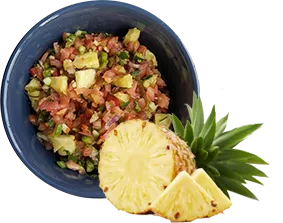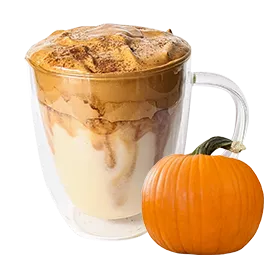These recipe cards showcase healthy recipes that can be created with simple ingredients that you can grow in your garden or purchase at your local Farmer’s market. On each card, you’ll find the ingredient list for the recipe, the preparation instructions, and some facts about food, satellite imagery and the instruments on JPSS.
Food is an important part of life and the National Oceanic and Atmospheric Administration (NOAA)’s and NASA’s Joint Polar Satellite System (JPSS) make sure fresh and healthy food continues to be available for you and your family. JPSS satellites provide information that helps farmers and gardeners make better decisions about how to grow and protect their crops so that you can find your favorite foods at the grocery store.
JPSS provides data to forecasters which can help predict severe weather that might damage crops and watch for conditions that could lead to plant diseases. Scientists rely on JPSS satellites for daily updates about land surface temperature, soil moisture, and vegetation products to help monitor and predict drought severity and provide valuable information for the agricultural community. JPSS data also informs the U.S. Drought Monitor Map, which shows drought conditions for each U.S. region and helps officials prevent food shortages. Satellite imagery tracks crop health which helps increase production for pantry staples like rice, wheat, barley, and corn.
JPSS data isn’t only used for farming on land, it’s also used by sustainable fisheries to predict harmful algal blooms, monitor sea surface temperatures and measure chlorophyll levels so they can deliver delicious seafood to your community.
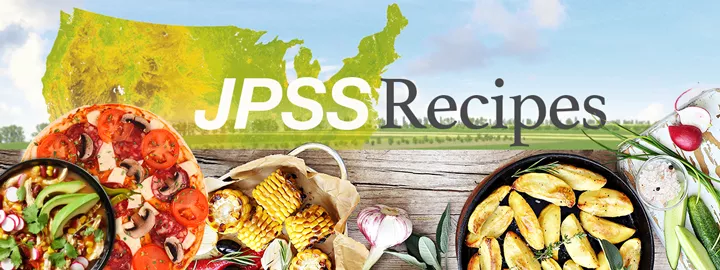
Pineapple Solar Salsa
On August 21, 2017 a total solar eclipse was visible from the United States for the first time in almost 100 years. Satellites, like JPSS, were able to use this opportunity to learn about how the Earth’s conditions change during an eclipse event. This “sunny” pineapple salsa is a delicious way to celebrate the excitement of an eclipse.
Pumpkin Spice Sate-latte
Get cozy with this sweet treat and learn more about how JPSS data helps coffee farmers by contributing to the NOAA STAR Global Vegetation Health model.
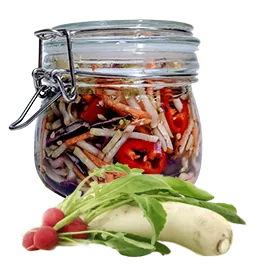
Easy Pickled Vegetables
Pickled vegetables are a great way to preserve fresh flavors of the bounty from summer gardens and Farmer’s markets.
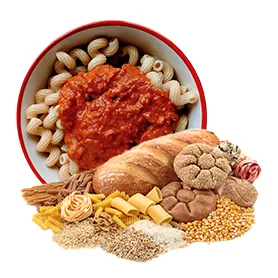
Roasted Tomato and Garlic Pasta Sauce
JPSS helps agricultural scientists create models of thermal and grain health conditions that provide an early warning system by predicting harvest yields up to two months in advance.
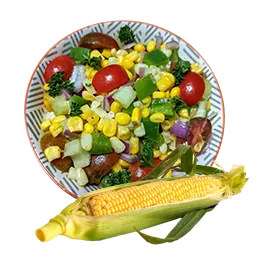
Cajun Corn Maque Choux
Amy Leibrand, Science Communication Specialist for JPSS, contributed this delicious fresh corn salad. Corn is one of the most important crops in the world. Not only is corn an ingredient in most of the food that we eat, it is also used for animal feed for livestock and is a component in ethanol, biofuels and sustainable bio-based plastics.
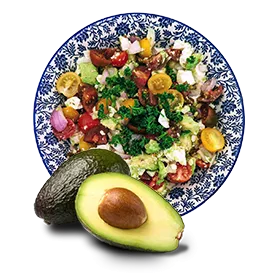
Avocado Feta Salsa
Data such as the Vegetation Health Index (VHI) help avocado farmers have reliable data about rainfall, temperature, and atmospheric conditions to help them produce a successful crop.
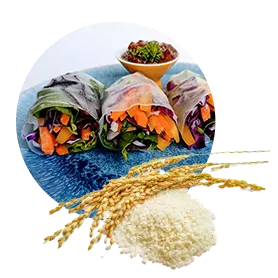
Summer Rolls with Peanut Dipping Sauce
Summer rolls use delicate rice paper wrappers to create a light and customizable meal. Climate data and advanced weather forecasting from JPSS instruments help rice farmers grow enough rice to feed people across the globe.
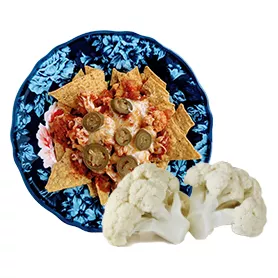
Cauliflower Nachos
Victor Grycenkov, NOAA Deputy Director at Joint Polar Satellite System (JPSS), shares his recipe along with remarks on working at JPSS and advocating for access to healthy food.
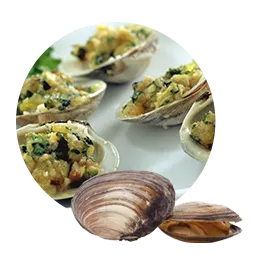
Baked Clams with Garlic & Butter
Not all harvests take place on land! Vanda Lewis at North Carolina Sea Grant submitted this tasty seafood recipe. JPSS monitors ocean temperature and reports on harmful algal blooms, two factors that can impact fisheries.
